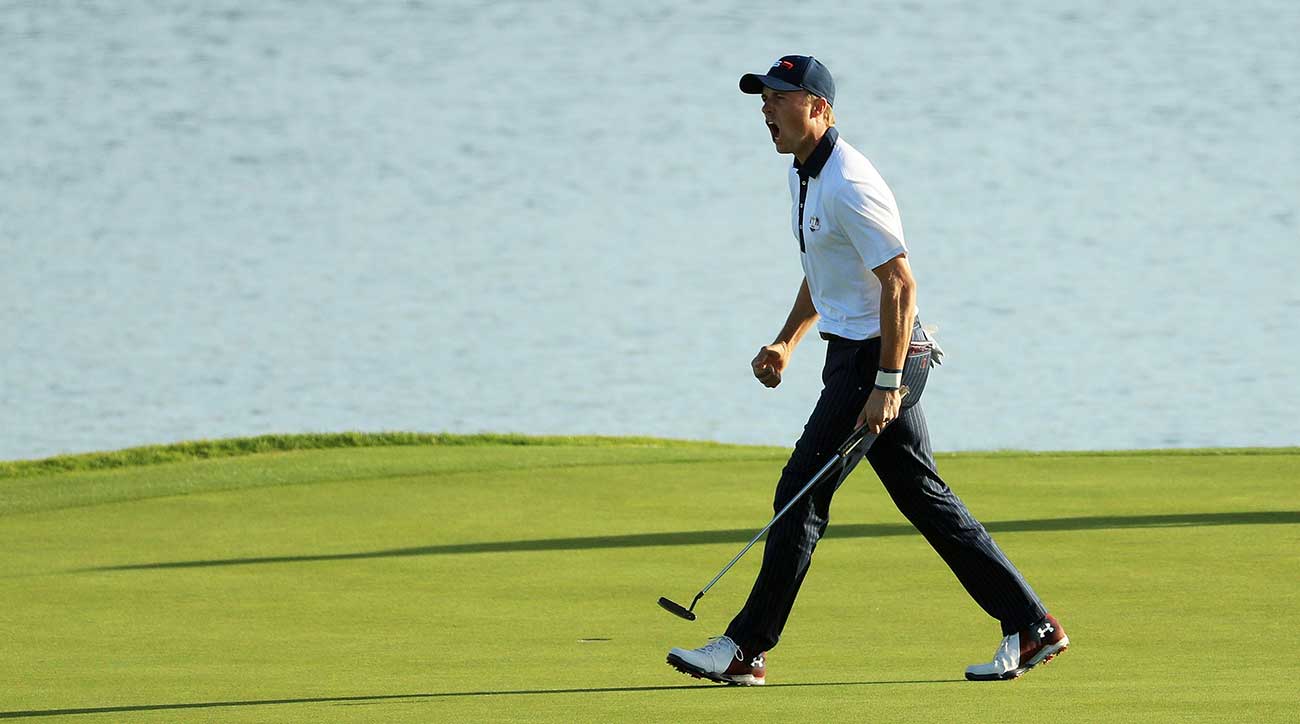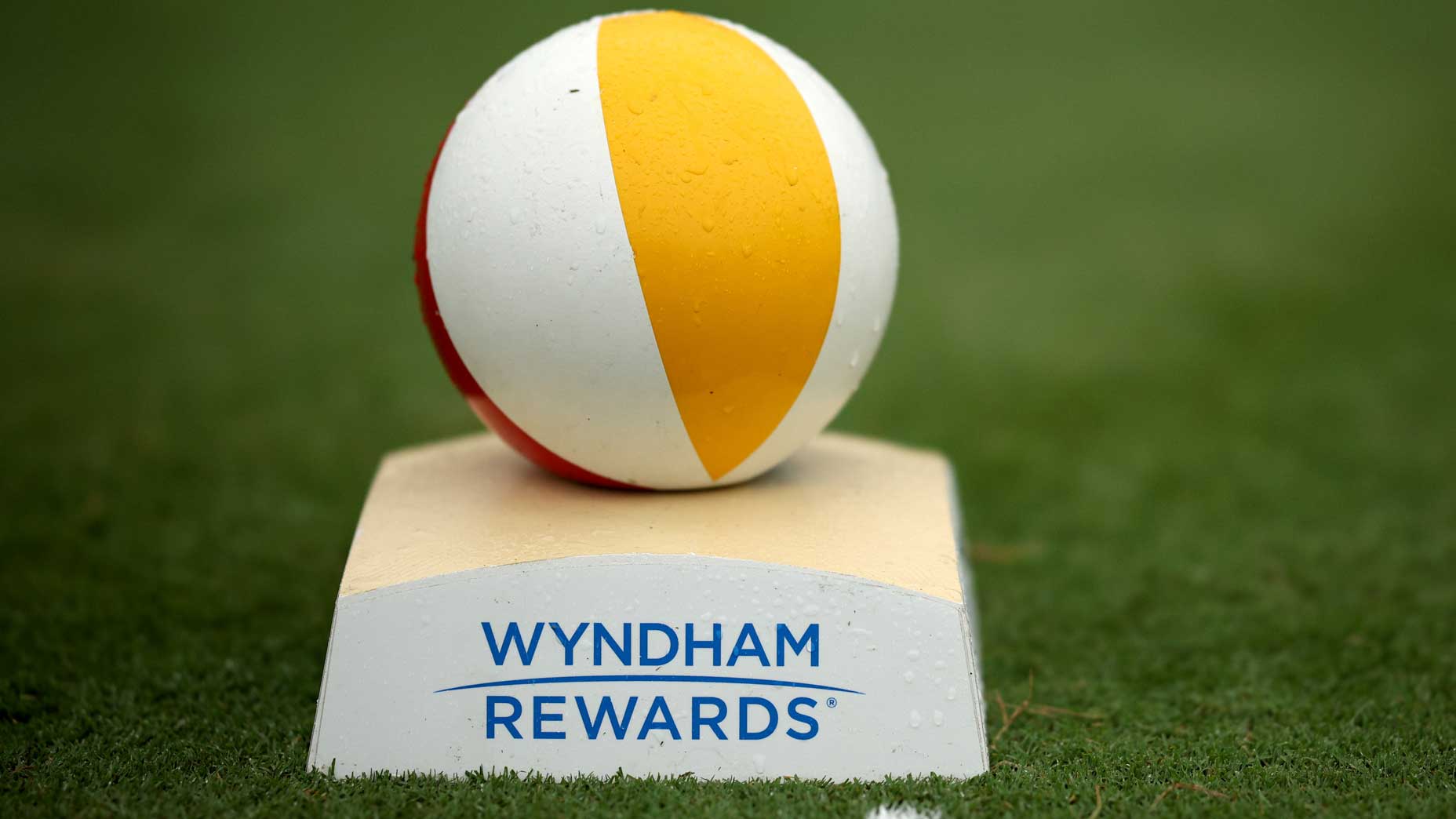SAINT-QUENTIN-EN-YVELINES, France — Where did it all go wrong for this U.S. team, a potential powerhouse that now faces a 10-6 deficit and potentially a lifetime of ignominy?
Maybe the trouble began on Jan. 19, 1991, when Tommy Fleetwood was born. Or in 2011, when Le Golf National was chosen to host this Ryder Cup, serving up a claustrophobic venue that took driver out of the hands of the long-hitting Yanks and was buffeted by strong, cold crosswinds which magnified the mishits of their many struggling players. Perhaps the Americans were doomed when Jim Furyk was named captain in January 2017; some of his pairings over the first two days left American fans pining for the coherence of the Tom Watson administration.
The problems can also be traced to a year ago, when the PGA Tour unveiled a back-breaking schedule that included a WGC, a major and four FedEx Cup events in the eight-week run-up to Paris, leading to a U.S. team featuring players who were sick (Bubba), run-down (Tiger), or slumping (Phil, Bryson, Brooks). In April, Patrick Reed won the Masters, ending his lifelong self-identity as an underdog and leading to five ensuing months of aimless play which carried over to Paris. Team Europe gained another advantage in July, when its home tour hosted the French Open at Le National, featuring a leaderboard crowded with future Ryder Cuppers; only one American, Justin Thomas, could be bothered to make the trip. (Maybe it’s not a coincidence JT was the USA’s MVP over the first two days, going 3-1 alongside Jordan Spieth.) A couple of few weeks after the French Open, Francesco Molinari won the British Open, ending Americans’ recent dominance in the major championships and buoying his team’s self- image.

The U.S. chances were certainly compromised when Furyk used one of his precious captain’s picks on a wayward and largely ceremonial golfer in Phil Mickelson rather than a precise ballstriker better suited to the course. The death knell could have come 19 days ago, when Paulina Gretzky purged her putative fiance Dustin Johnson from her Instagram, a visible sign of unrest in a high-profile coupling; Dustin played the first two days of this Cup like a guy who has been sleeping in an actual doghouse, going 1-3, though some of the blame must also go to an unfaithful putting stroke. In hindsight, Tiger Woods’s victory at the Tour Championship last Sunday was the worst thing that could have happened to the U.S. team — he was so emotionally exhausted at Le National he looked somnolent, even by the standards of his previous disengaged Cup performances. While the top Europeans have inspired their partners, Woods’s lack of emotion has seemed to depress the play and fighting spirit of the players with whom he has been paired.
Add it all up and the U.S. has a four-point deficit, following a 2-2 split in afternoon foursomes that actually constituted some progress. The Americans now need eight points in the 12 singles matches to forge a tie and retain Samuel Ryder’s trophy. The 10-6 score is a freighted one, rousting the ghosts of Brookline and Medinah. But for the U.S. to perform a similarly miraculous comeback will require a total team effort, and so many of them besides Woods (0-3) and Johnson are struggling: Reed, the would-be Capt. America, has had his shaky ballstriking exposed while going 0-2; Koepka, 2018’s player of the year, got skunked twice on Saturday, missing putts to end each match; Mickelson was atrocious in a short cameo on Friday in foursomes, the worst-possible format for him, and then was benched for all of Saturday; and rookie Bryson DeChambeau has been on the wrong end of two blowouts, including a Saturday afternoon death march alongside Woods.
Ever the optimist, Jordan Spieth still managed to find some comfort in the score. “We know teams have come back before from 10-6,” he said. “We have so many good players we know we can do it.”
Tom Lehman was part of the Americans’ epic comeback at Brookline in 1999, and while walking the fairways of Le National, in his advisory role as a past captain, he said, “Momentum is such a powerful force. Strange things happen on Sunday at the Ryder Cup. Everything kind of feeds on itself.”
If the U.S. is looking for reasons for optimism, there are a few glimmers. Europe’s emotional leader, Ian Poulter, got beaten twice on Saturday. Rookie Jon Rahm, eighth in the World Ranking, was expected to be a Ryder Cup monster but has looked overwrought in losing his only two matches. Rory McIlroy, Sergio Garcia and Alex Noren all cooled off in afternoon losses. Winless rookie Thorbjorn Olesen was benched for all of Saturday and will be iffy at best in singles. The Europeans’ chemistry has been palpable during partner play, as it often is, but forced to play alone on Sunday they have at times in the past looked lost, as in 2016, winning only 4.5 points.

Meanwhile, Thomas has been a fist-pumping revelation in his Ryder Cup debut and Spieth has rediscovered some magic after a winless season. Two of the team’s biggest question marks, Bubba Watson and Webb Simpson, came up huge in an afternoon foursomes victory. And then there is morbid comfort in the fact that Woods, Mickelson, Johnson and Koepka – all Hall of Fame talents – can’t possibly keep playing this bad. Can they?
With its substandard play and abject lack of emotion, this U.S. Ryder Cup team has been a deep disappointment across the first two days of this event. Now the boys in red, white and blue are down to their last chance for salvation. It’s a big ask. On the eve of his team’s comeback in 1999, captain Ben Crenshaw famously said he felt something special was brewing. Thomas doesn’t traffic in mysticism, but he offered a thought that now has to serve as the American rallying cry: “Never say never.”






